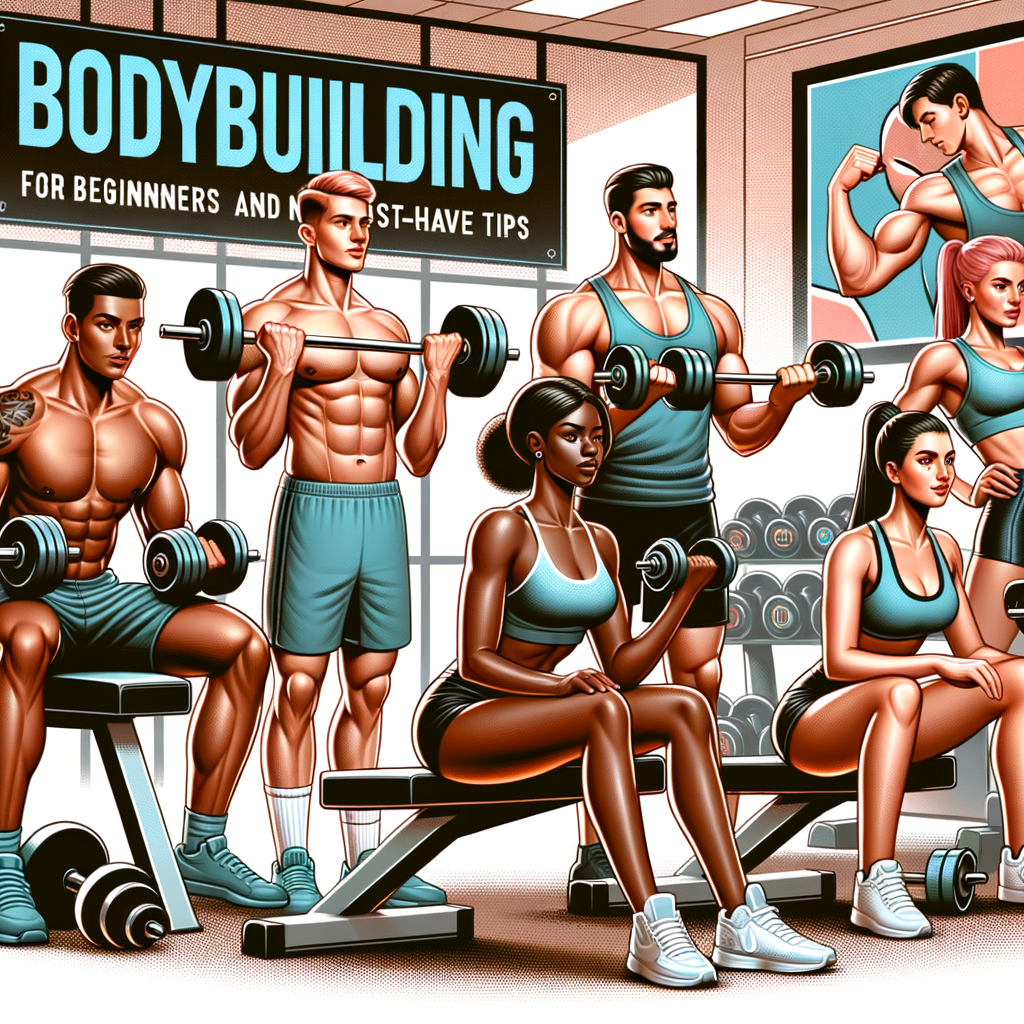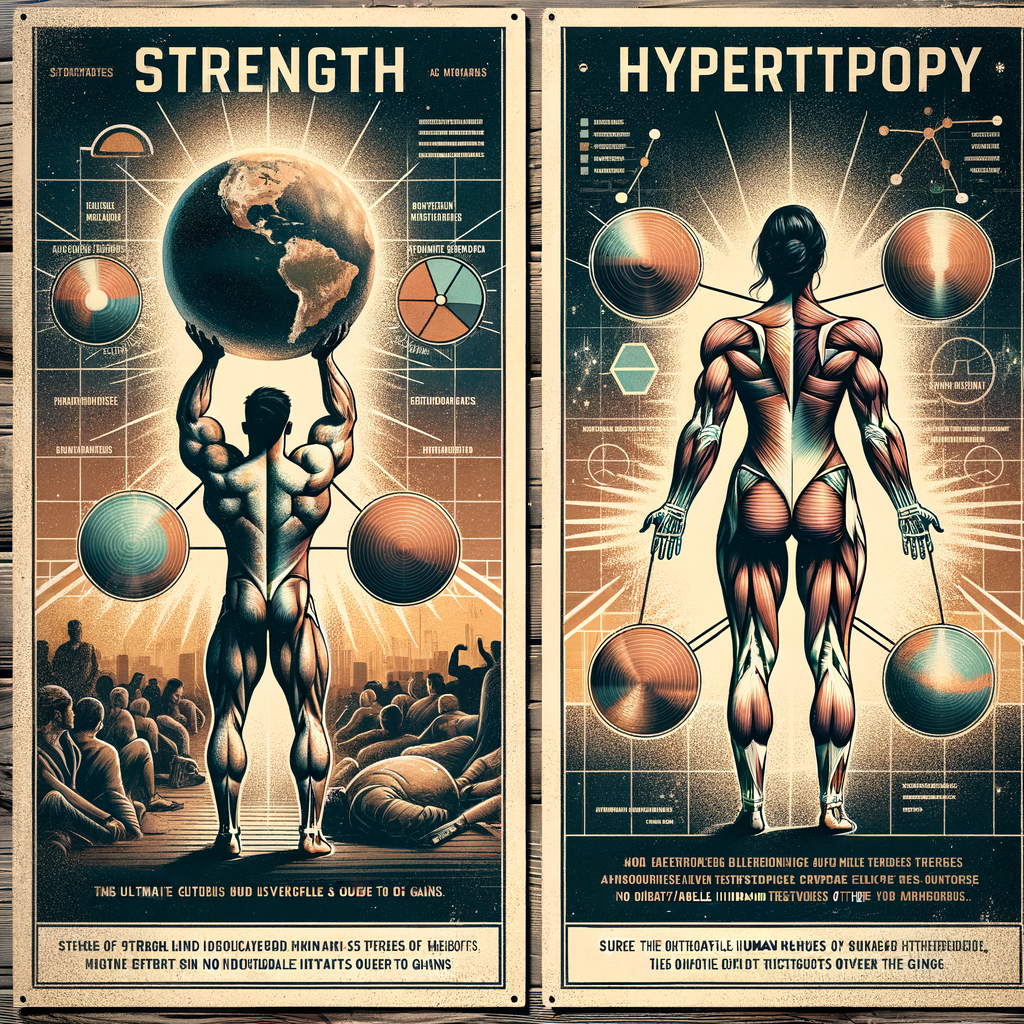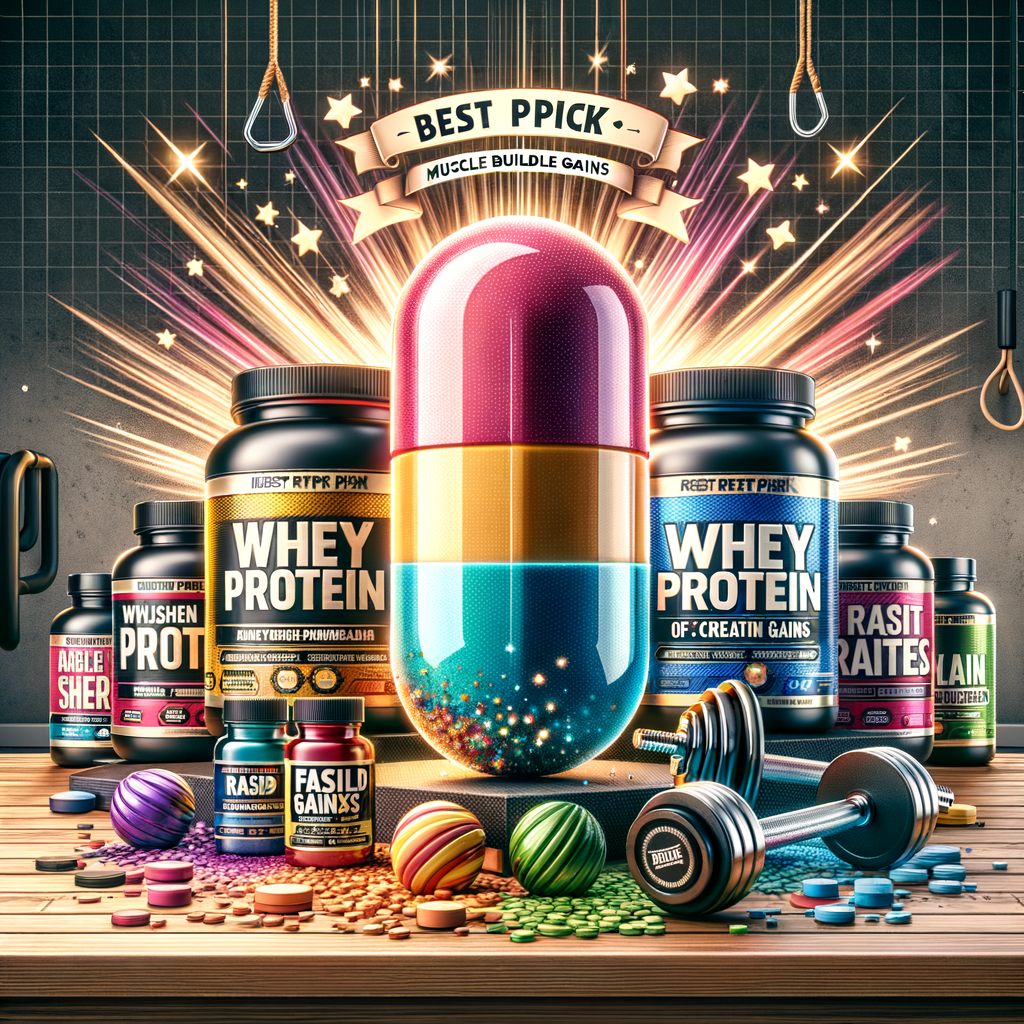- Understanding Bodybuilding
- Setting Realistic Goals
- Crafting an Effective Workout Routine
- Understanding Nutrition
- The Importance of Rest and Recovery
- Keeping Track of Your Progress
- The Role of Supplements
- Staying Motivated
- Common Mistakes to Avoid
- Frequently Asked Questions
- 1. How quickly can I see results from bodybuilding?
- 2. Do I need to go to the gym to start bodybuilding?
- 3. How important are rest days in a workout regimen?
- 4. Can I build muscle at home?
- 5. What is the best diet for bodybuilding?
- 6. How often should I change my workout routine?
- 7. Is supplementation necessary for beginners?
- 8. How do I motivate myself to stick to a regimen?
- 9. How much protein do I need daily?
- 10. What if I hit a plateau in my training?
- References
Understanding Bodybuilding
Bodybuilding can be a transformative journey, both physically and mentally. For beginners, the world of weights, proteins, and gym routines can seem overwhelming. However, it doesn’t have to be complicated. With the right foundation and mindset, anyone can start their bodybuilding journey effectively. Here, we’ll guide you through essential tips that simplify the process and assist you in hitting your goals.
Engaging in bodybuilding is not solely about lifting heavy weights. It’s about developing a lifestyle that encompasses proper nutrition, effective training, and adequate rest. Adopting these principles early will help you progress smoothly. Rather than feeling intimidated, simply appreciate that every expert started as a novice. Let’s break down crucial aspects of bodybuilding for beginners to set you on the right path.
Setting Realistic Goals
Goals are essential in bodybuilding, as they keep you motivated and focused. Start by defining what you want to accomplish. Is your aim to gain muscle mass, lose fat, or improve your overall strength? Having specific goals helps you measure your progress.
When crafting your goals, use the SMART criteria: Specific, Measurable, Achievable, Relevant, and Time-bound. For example, instead of saying, “I want to get fit,” you could say, “I want to gain 10 pounds of muscle in three months.” This clarity will guide your training and nutritional focus. Celebrate small achievements along the way; these victories provide motivation and keep the momentum going.
Crafting an Effective Workout Routine
Creating a solid workout routine is a fundamental aspect of bodybuilding for beginners. Balance your training to ensure you’re working all major muscle groups. Consider incorporating compound exercises, which engage multiple joints and muscle groups. These include squats, deadlifts, bench presses, and rows. They provide the most bang for your buck in building strength and mass.
Plan your workout week methodically. A common approach is the “split routine,” targeting different muscle groups on specific days. Here’s a simple example:
| Day | Muscle Group |
|———–|———————-|
| Monday | Chest and Triceps |
| Tuesday | Back and Biceps |
| Wednesday | Legs |
| Thursday | Shoulders and Abs |
| Friday | Full Body |
| Saturday | Rest or Light Cardio |
| Sunday | Rest |
Make sure to warm up properly before each session. Warming up prepares your muscles and reduces the risk of injury. Don’t rush; give your body the time it needs to adapt and grow.
Understanding Nutrition
Nutrition plays a significant role in bodybuilding. Eating the right foods fuels your workouts and aids recovery. Focus on a diet rich in proteins, carbohydrates, and healthy fats. Protein helps repair and build muscle, carbohydrates provide energy, and fats support hormonal balance.
Aiming for at least 0.8 to 1 gram of protein per pound of body weight is a common recommendation. Great protein sources include lean meats, fish, eggs, and legumes. Also, consider incorporating complex carbohydrates like whole grains, fruits, and vegetables. These options supply essential nutrients and energy for your workouts.
Stay hydrated. Water is crucial in maintaining performance and speeding up recovery. A good rule of thumb is to drink at least half a gallon daily. Adjust based on activity level and the climate.
The Importance of Rest and Recovery
Rest and recovery are often overlooked but are crucial for beginners in bodybuilding. Your muscles need time to heal and grow after workouts. Overtraining can lead to injuries and hinder progress. Aim for at least 1 to 2 rest days per week. Use these days to relax your body and allow it to recover.
Sleep is also an essential factor in recovery. Aim for 7 to 9 hours each night to rejuvenate your muscles. Better rest contributes to better performance, sharper focus, and improved mood. Consider adopting a bedtime routine to enhance sleep quality. Limiting screen time before bed and maintaining a cool, dark room can facilitate better sleep.
Keeping Track of Your Progress
Tracking your progress is vital in bodybuilding. Keep a journal or use a fitness app to log your workouts, nutrition, and physical changes. This helps you stay accountable and see what works for you. Measure aspects like your weight, muscle mass, and even how your clothes fit.
Photos are a powerful way to visualize changes over time. Take front, side, and back photos every few weeks. This can motivate you on days when progress feels slow. Remember that building a body takes time. Be patient and persistent.
The Role of Supplements
While a well-balanced diet should cover most nutritional needs, some supplements can enhance your bodybuilding journey. They are not mandatory but can aid in achieving your goals more efficiently. Some popular options include whey protein, creatine, and branched-chain amino acids (BCAAs).
Whey protein is excellent for recovery and muscle growth. Creatine can improve strength and enhance performance during high-intensity lifts. BCAAs can aid in recovery, especially if you train intensely. However, always consult a healthcare professional before starting any supplement regimen. They can guide you based on your unique needs and health status.
Staying Motivated
Staying motivated can be a challenge, especially for beginners. It’s important to remember why you started in the first place. Creating a vision board can help visualize your goals and keep your aspirations at the forefront of your mind. Additionally, consider working out with a friend or joining a class. Social support can significantly enhance your motivation and accountability.
Change things up regularly. Boredom can lead to a lack of motivation. Experiment with new exercises, routines, or even different workout styles like circuit training or yoga. This keeps your journey fresh and enjoyable, making it easier to stick to your plans.
Common Mistakes to Avoid
As a beginner, avoiding common pitfalls can save you time and frustration. Many newcomers tend to lift weights that are too heavy too soon. This can lead to a greater risk of injury. Start with a weight that allows you to complete your reps with proper form. Focus on mastering the basics before increasing the weight.
Another mistake is neglecting nutrition. Skipping meals or indulging in junk foods can hinder your progress. Opt for whole foods that nourish your body. Additionally, don’t underestimate the importance of warming up and cooling down. Proper warm-ups prepare your body for training, while cool-downs promote recovery.
Embrace a balanced approach. Bodybuilding is a marathon, not a sprint. Understanding that you will have ups and downs makes it easier to stay committed to your long-term goals.
Frequently Asked Questions
1. How quickly can I see results from bodybuilding?
Results vary based on several factors, including individual metabolism, effort, and consistency. Typically, beginners can see noticeable changes within 8 to 12 weeks with dedicated effort.
2. Do I need to go to the gym to start bodybuilding?
While the gym provides equipment, many effective exercises can be done at home with minimal equipment. Bodyweight exercises are an excellent place to start.
3. How important are rest days in a workout regimen?
Rest days are crucial for recovery. They allow your muscles to heal and grow. Overworking your body can lead to injuries and fatigue.
4. Can I build muscle at home?
Yes! There are plenty of exercises that you can do at home with dumbbells, resistance bands, or bodyweight. Consistency and intensity are key.
5. What is the best diet for bodybuilding?
Aim for a balanced diet rich in proteins, complex carbohydrates, and healthy fats. Focus on whole foods, like lean meats, vegetables, whole grains, and nuts.
6. How often should I change my workout routine?
Changing your routine every 6 to 8 weeks can prevent plateaus. Adjustments could be new exercises, increased weight, or different rep ranges.
7. Is supplementation necessary for beginners?
No, supplements are not necessary for most beginners. A balanced diet can provide the needed nutrients. However, some beginners may choose protein powder for convenience.
8. How do I motivate myself to stick to a regimen?
Set clear, achievable goals, track progress, and find a training partner. Engaging with a community or following fitness influencers can also boost motivation.
9. How much protein do I need daily?
A common recommendation is about 0.8 to 1 gram of protein per pound of body weight, depending on your specific goals and training intensity.
10. What if I hit a plateau in my training?
Plateaus are a common part of fitness. To overcome them, change your workouts, adjust your nutrition, or focus on different training techniques to challenge your body.
—
Bodybuilding for beginners doesn’t have to be complicated. With these tips, you can simplify your journey and enjoy the process of building strength and muscle. Remember that persistence, patience, and a positive attitude make all the difference in achieving your bodybuilding goals.
References
1. American Council on Exercise: A Beginner’s Guide to Strength Training
2. National Institute of Health: Nutrition Basics for Bodybuilders
3. Bodybuilding.com: Getting Started



